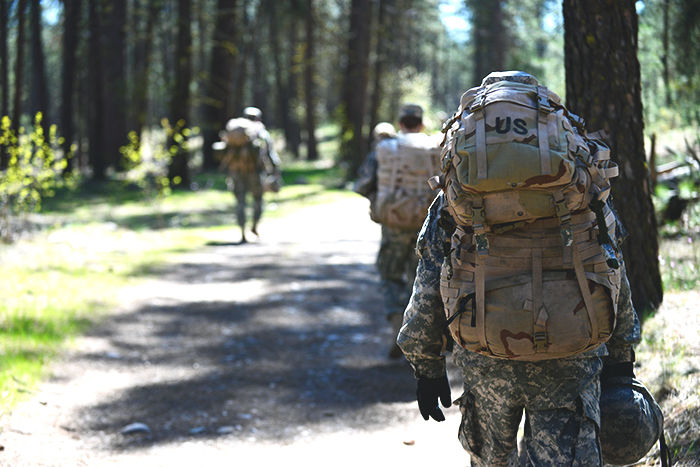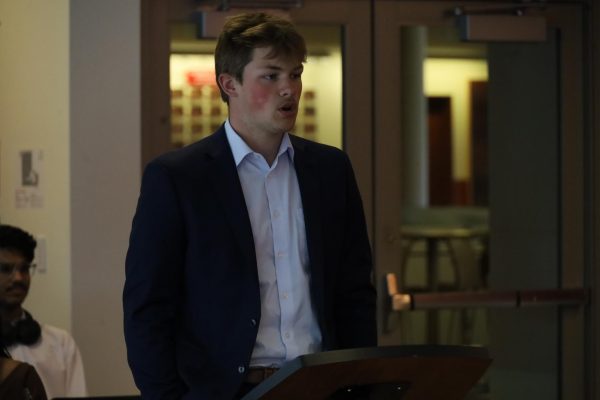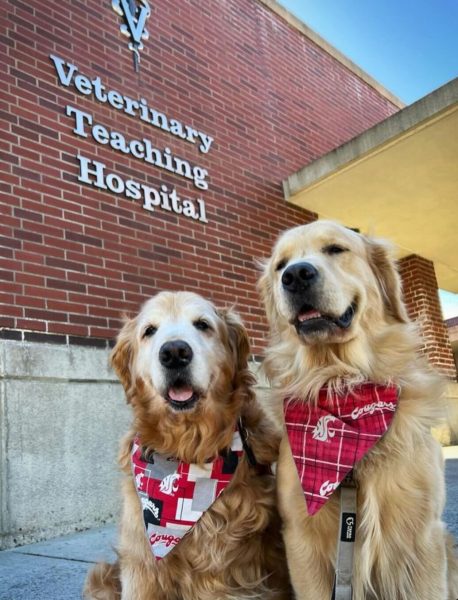Prioritizing sexual assault education
More than 20,000 service members were assulted in 2014. The WSU ROTC educates cadets about this issue.
April 14, 2017
When a man or woman serving in the military feels sexually threatened, their options for reporting these threats can seem limited. Years can go by before something like a Facebook page circulating unauthorized photos of female service members, reported by federal investigators on Tuesday morning, are discovered or even tried in court.
Each division of the military has programs that respond to and prevent sexual violence. In spite of this, rates are still high.
More than 20,000 service members were assaulted in 2014, according to data released by the U.S. Defense Department and the RAND Corp. Over 80 percent of those reports were not made by the victims themselves.
In order to curb these issues before they ever become prevalent, university programs have taken on a special responsibility of trying to eliminate offenses early while cadets are still in school.
At WSU, the Army training program applies principles from a resource created by the U.S. Army Corp., titled SHARP. This acronym stands for sexual harassment/assault response and prevention.
“Every semester, we begin with a lab that explains what behaviors and duties are expected of ROTC [Reserve Officers’ Training Corps] cadets,” Christopher Heatherly, a WSU military science professor, said. “Right away, cadets are taught they are expected to be leaders, and a key part of that leadership is their role in preventing sexual violence.”
SHARP cannot be taught directly to cadets, Brandy Culp, an assistant military science professor, said, because they are not technically enlisted with the U.S. Army. The ROTC program trains students through college to the point of being commissioned in the military after four or five years.
However, cadets can be taught the principles of SHARP and later educated on what resources are made available by WSU or the Pullman community.
Heatherly brings in people from local police departments, advocacy agencies and university departments that specialize in enforcing equal opportunity and safety on campus to the first few labs of each semester.
“The principles of SHARP and other university funded programs are the same, but the reporting is different,” Culp said. “We’re not teaching two completely different things.”
WSU’s ROTC program particularly took an interest in enforcing better sexual violence practices when Heatherly was assigned to head military science professor in 2014. Days after he was given his orders, former President Barack Obama released a list of 55 schools that would be investigated for sexual violence. WSU was one of them.
“Recognizing how important this was, I immediately made sexual violence prevention a cornerstone of our program,” he said.
Since then, military science professors, like Culp, have noticed a consistent trend of positive reinforcement and retention of the lessons by cadets.
“There is an open-mindedness on this campus that doesn’t exist elsewhere,” she said. “It’s refreshing.”
Cadets Joseph Bocchi, Andrew Carrosino and Bryce Linna are three WSU seniors who have gone through the sexual violence prevention training and have learned to apply this training to any situation.
When a situation occurs, Linna said a victim is taken to their program’s SHARP representative. From there, the SHARP representative makes clear the various outlets a victim has to report a crime within the U.S. military. That report is then processed by the ROTC program before being carried out to a higher command.
Outside of the program and off campus, cadets are expected to continue intervening, acting and motivating others to make ethical decisions regarding any behavior, Carrosino said, including sexual assault.
“You don’t represent the uniform one day and disregard it another,” he said. “Your behavior carries over to your civilian lifestyle, too.”
While national reports reveal a persistent trend of sexual violence in the military, WSU continues to be one of many universities trying to be proactive to the issues.
Heatherly and Culp both believe the cadets would not be enrolled in the program or pursuing enlistment in the Army if they were going to risk it all to disobey the principles they’ve worked to enforce for years.
“The thing about ROTC in comparison with the Army population in general is that we are looking for educated individuals with a sense of duty,” Culp said. “Most of the cadets are doing this to fulfill a sense of duty.”



















